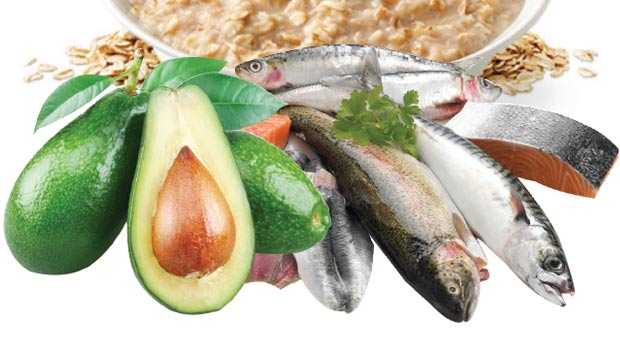Nutrition: Eat to lower your cholesterol
Cholesterol is known to clog the arteries and can result in many health issues including heart attack and stroke. While you are advised to eat a healthy diet that includes


Cholesterol is known to clog the arteries and can result in many health issues including heart attack and stroke. While you are advised to eat a healthy diet that includes healthy fats to keep your cholesterol in check, there are foods that are not expensive and including them in your diet is recommended. We tell you which ones they are.
When did you last have your cholesterol checked? Last month, last year, five years ago or never? High cholesterol is one of those things we are often reminded by doctors and nutritionists that is not good for our health, but because it has no visible symptoms its easy to ignore and not have it checked. If you have not had your cholesterol checked in the last one year, do so now. It could save your life.
Having too much cholesterol in the blood can lead to hardening of the arteries, medically known as atherosclerosis, and increased risk of cardiovascular disease, including stroke and heart attack. Eating a healthy, balanced diet and exercising regularly can help raise your levels of HDL (high-density lipoprotein) – good cholesterol and lower LDL (low-density lipoprotein) – bad cholesterol, so you should always follow healthy eating habits. You should consume a diet that consists of all the nutrients required by the body, ensuring the nutrient sources are healthy foods such as fruits, vegetables and pulses.
Health experts and researchers advise that to keep your heart healthy and to lower the bad cholesterol, you need to limit your intake of bad fats, which include animal fats and hydrogenated fats. But fats are not the only culprits, indeed, fats alone is not the whole story of keeping your cholesterol in check. Some foods are known to influence how cholesterol is absorbed in the body and when eaten regularly, are effective at lowering cholesterol levels. Here are the top foods you should include in your diet.
Oats and pulses. Oats, lentils and all types of beans are extra rich in soluble fibre and work to lower LDL cholesterol by binding to bile salts in the digestive tract. The liver then uses LDL cholesterol to make replacement bile salts, causing a lowering of LDL levels. Have oats porridge for breakfast and also include beans in your food as a source of protein instead of red meat. Add kidney beans to your tomato pasta sauce and other types of beans to your stews. Raw fruit and vegetables are also rich in soluble fibre, so have at least one piece of raw fruit or a salad every day. You can start your breakfast with a portion of fruit before your oats, or you can snack on fruit all day long.
Oily fish. Mackerel, salmon, sardines, trout ad fresh tuna are rich in omega-3 fatty acids, which lower LDL and raise HDL levels. Omega-3 also helps lower blood pressure and reduce atherosclerosis. Aim for two servings of fish a week, one of them an oily fish. If you cannot afford fish in your diet, take omega-3 supplements or cod liver oil.
Avocados and peanut oils. The monosaturated fats in avocados and olive, sunflower, rapeseed and nut oils, have been found to lower LDL levels and boost HDL levels. Heating destroys some of their powers though, so drizzle on salads and vegetables. Opt for cold-pressed oils, which are processed naturally. Read the label before you buy.
Garlic. Cooked or raw garlic contains compounds that help lower the liver’s production of cholesterol. Include garlic in your cooking or eat it raw if you can. Regular consumption of onions, chili peppers, artichokes and shitake mushrooms can also lower LDL levels, so have these as often as you can.
Walnuts and flaxseeds. These are both rich in alpha-linoleic acid – an omega-3 fatty acid that offers the same benefits as oily fish. Sprinkle a small handful of walnuts or one teaspoon of flax seed over porridge or salads. You could also add it to smoothies or fruit salad.
Plant stanol and sterol esters. Found in special margarines and yoghurts, these phytosterols are chemical compounds extracted from plants. When eaten daily, they can reduce LDL by as much as 15 per cent by reducing the uptake of cholesterol from the gut. You can get these margarines and yoghurts from health food stores or you could get them as supplements. Always read the food labels before you buy and check expiry dates.
Published in February 2014 issue





